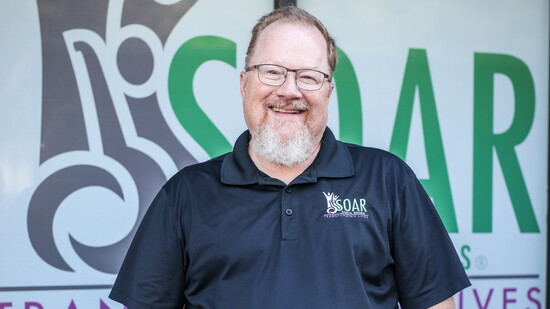A pediatrician turns grief into the nation’s largest disability day camp and a lifeline for local families.
It didn’t start in a boardroom. It began with a dad trying to keep his son safe in public. Dravet Syndrome, profound autism, strangers’ stares, and five separate police encounters that spiraled because people didn’t understand what they were seeing. When Mark tragically passed at five and a half, his parents, both pediatricians, made a decision: build what families like theirs never had.
SOAR Special Needs began with respite nights. Practical. Unflashy. Life-saving. Parents drop off their child, and for three hours, they remember they are also partners and people. One early evening, a mom returned in tears: it was the first time in fifteen years she’d eaten dinner alone with her husband. He quietly admitted he’d scheduled a meeting with a divorce attorney for Monday. He canceled. Thirteen years later, they’re still together. That’s the kind of impact SOAR chases on purpose.
Today, SOAR Camp runs two week-long sessions each summer, one on the Missouri side and one in Johnson County, welcoming campers ages 3 to 77. In 2025, 217 campers were supported by more than 650 volunteers. Every camper is paired 1:1 with a trained buddy, backed by a full medical and behavior team. The question is never “Can we handle this child?” It’s “What do we need in place so this child can fully participate, and actually be a kid?”
That medical backbone stays intentionally invisible. It’s there when a child with a trach and ventilator spends the day painting, playing in water, and laughing with a new friend, while his mom can relax. It’s there when seizures happen, tube feeds run, diabetes is monitored, and bathroom care is handled with dignity. Medicine keeps you alive; SOAR is in the business of life.
The impact extends far beyond summer. Year-round, SOAR hosts teen and adult social clubs, a prom, a fashion show, and sensory-friendly Truck-or-Treat, Sensory Santa, and EGG’Stravaganza. Caregiver support groups create space to exhale. New adult programs focus on employment readiness, like 3D printing, and micro-enterprise, because three taboo questions haunt every special-needs parent: Will my child ever provide for themselves? Who takes care of my child when I’m gone? And who takes care of me?
Advocacy sits at the center. Dr. Stephen “Doc” Hunsley shares that they have helped more than 700 churches, parishes, and synagogues in the U.S. and 23 countries build inclusive ministries. Hope and belonging aren’t extras; they’re lifelines. Families can’t thrive if the community shuts its doors.
The needs are big and immediate. Families pay $499, but it costs roughly $1,500 per camper to do this right. Programming runs at a $7–8 million scale on a budget under $500,000. Volunteers determine capacity (SOAR targets three to four per camper). Accessible, flexible facilities are hard to secure. And disability—the largest minority in America—rarely makes headlines, leaving too many families unaware that help exists.
Here’s what changes the equation: you.
Volunteers ages 12 and up (younger kids serve with a parent). The only prerequisite is the simplest one: Can you be a friend? SOAR trains you. Medical professionals such as nurses, therapists, and allied health professionals are the backbone that makes full inclusion safe. Monthly donors (“Friends of SOAR”) stabilize the foundation so every other dollar can go straight to programming. Board members and connectors open doors to facilities, sponsors, grants, and media. Businesses can donate food for camp, offer space, sponsor events, provide jobs and internships, or underwrite adaptive equipment. Universities (nursing/OT/PT) can place students for hands-on clinical experience that matters.
“We don’t fix families, they aren’t broken,” Doc says. “We fix the systems that fail them.” The magic isn’t changing kids. It’s changing how the world sees them so they can do what they were made to do. Let them soar. And bring the rest of us with them.
The question is never “Can we handle this child?”
“We don’t fix families, they aren’t broken,” Doc says. “We fix the systems that fail them.”
